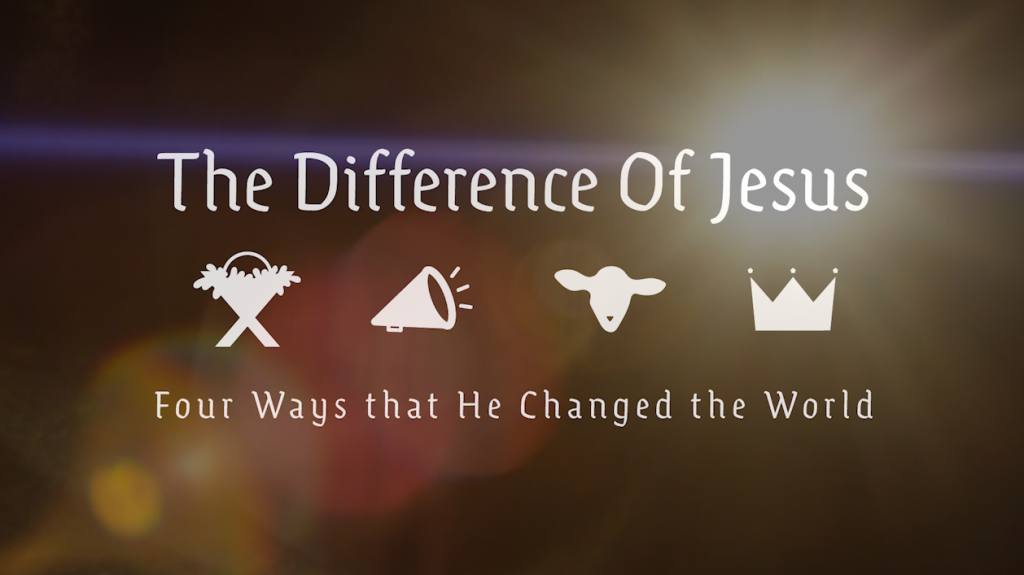Passage: Hebrews 1:1-14
Guide for Group Discussion or Personal Reflection
Sermon Summary
At Christmas, we celebrate the good news that the Son of God became incarnate as our king. This is only good news, however, if we understand what kind of king he is—namely, our divine king who is also a human priest.
In Hebrews 1, the author first goes to great lengths to show how Jesus is our divine king who is also a human priest. The author gives seven indications of Jesus’ divinity in chapter 1, naming him as the heir and creator of all things, for example, the one who perfectly represents God, shares his divine name, and is the cosmic Lord sitting on God’s very throne. Though we “don’t yet see all things subject to him”, this knowledge of his rule should give us great peace amidst the trials of our hectic world, at a time when it seems like everything is out of control.
At the same time, Jesus’ kingship is colored by the fact that he is also a human priest. This means that though he reigns on high, he doesn’t keep a cold distance from us, but comes close to us in our sin and suffering and bears our burdens for us. We can trust him because, therefore, he is good and kind to us.
Just as Jesus’ kingship is informed by his priesthood, so is his priesthood defined by his powerful kingship. Unlike other human priests, who always had to stand, never truly able to finish their work of offering sacrifice, Jesus’ sacrifice was perfect and effective once and for all—as illustrated by the fact that “he sat down” (on a throne!) afterwards. We no longer have to keep making atonement for ourselves, because Jesus did this perfectly for all time.
We have no reason to run from Jesus, and every reason to draw near to him this Christmas! As our priestly king, his rule is characterized by grace and understanding. As kingly priest, his sacrifice is perfect and effective. Thank God for him!
Sermon Outline
- Jesus is Divine King who is also a Human Priest (1:1-14; 2:8-9)
- Jesus is the Human Priest who is also a Divine King (1:3; 10:12: 12:2)
Group Discussion & Personal Reflection Guide
Re-read the passage (Hebrews 1:1-14)
Jesus is Divine King who is also a Human Priest (1:1-14; 2:8-9)
Q) Re-read Hebrews 1:1-4. What evidences do you see of Jesus’ divinity in these verses? What evidences do you see of his kingship?
Q) In Hebrews 1:3, Jesus is described as “the radiance of the glory of God and the exact imprint of his nature”. How does this help shape the way you see God? What does it tell you about God’s nature and character?
Q) Pastor Bobby shared about how Jesus’ kingship reminds us that he is in control, even when it seems like our personal lives, and the world at large, are out of control. Where, if at all, have you personally felt the sense that things are “out of control” this December? How can the knowledge of Jesus’ rule give you confidence and hope?
Q) Re-read Hebrews 1:4-7 and Hebrews 2:9 and compare/contrast these verses. In particular, where is Jesus, in relation to angels in Hebrews 1:4-7, and where is he in relation to the angels Hebrews 2:9? What does this tell us about the character and heart of Jesus? AND: How does the fact that Jesus “suffered” and “tasted death for everyone” characterize the nature of his rule?
Q) What positions of influence or leadership has the Lord given you in this season, if any (formal or informal…e.g. in your family, in the church, in your work)? How might knowing the way that Jesus rules influence the way you seek to be a leader in these spheres?
Jesus is the Human Priest who is also a Divine King (1:3; 10:12: 12:2)
Q) Re-read Hebrews 1:3; 10:12; 12:2. What do these verses teach about the effectiveness of Jesus’ sacrifice? How was it different than the sacrifices that other priests offered?
Q) Pastor Bobby said that because Jesus “sat down”, having made a complete and effective sacrifice for our sins, once and for all, we can stop feeling the need to advocate and atone for ourselves. What are some ways/behaviors that people engage in today, to try to “atone for themselves” or “advocate for themselves” before God and others? How do you do this yourself?
Q) What is one thing you’ve learned or re-learned about Jesus this Advent season that has led you into fresh worship of him, and gratefulness for him?
Additional Application Questions
Q) How else would you like to engage with God this week?
Q) How can you tangibly care for those in your community this week, both inside and outside of the church?
Prayer
Spend time praying for yourselves, our church community, the North Shore community, and our nation and world—particularly those most vulnerable.

